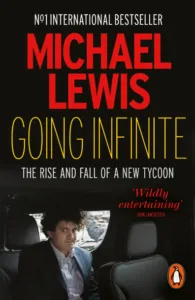02 Jun 2025
Investment: What do you think about gold / bitcoin / currencies / other commodities?
When markets are turbulent, there’s always someone who drags out a chart of their favourite commodity that appears to be contrarian, or at least not following the trend.
Whether it’s the pilgrim with the beard saying gold is eternal, the crypto bro’s (and sistah’s) who swear all currency will eventually be dead, or those who are fans of other specific commodities or speculative assets, there are some valid and useful questions to be considered.
Yes, owning a commodity investment can diversify your overall risks. And yes, commodity investing can be very profitable. As can currency trading.
However, as someone who helps people to plan long-term investments that are meant to build in value over time and intended to support the investor’s goals and aspirations for the future, I have a number of critiques of commodities and similar speculative assets (for ease of reference I’ll refer generally to all of these as commodities hereafter).
1. Most commodities do not generate an income for the investor – their only value is in the market price at which they are currently trading. Their value is generally speculative, with limited accumulation of stored value as occurs with rent, dividends, or interest from other investment types.
2. The value of commodities can be highly volatile, because their underlying worth is not clear. Gold for example has value in jewellery and industrial uses, but that’s not usually the main impetus driving spikes in its value, instead macro-level market fear will often see floods of gold purchases that are then withdrawn as investor fear subsides and greed returns. Other commodities, currencies, and crypto in particular, can be far more difficult to pinpoint as having any inherent or base value.
By contrast, company shares are usually underpinned by the net asset value or what the entire assets of the company could be sold for if the company were to fail. And bond values are based on a combination of the coupon the bond is redeemable for, the interest offered, and the creditworthiness of the government or company that has issued them (often including large companies that are richer than quite a few countries!)
3. Trading commodities tends to be quite specialised – favouring those who focus only on a small handful of commodities or markets. For most retail investors, there is a huge information and market-access mismatch between them and the large institutions that are specialists in various commodities.
4. In less well-regulated investments such as crypto, wine casks, whisky barrels and similar ventures – the actual execution and safeguarding of trading is often a grey area. Michael Lewis, in his recent book Going Infinite, chronicles the fascinatingly complete lack of internal controls at FTX, which was then one of the largest crypto trading exchanges in the world – with peak trading volumes of 21 billion dollars in 24 hours.
Trading in these less well-regulated areas often carries a significant hazard of fraud (although this is improving) and there is also a concerning appetite for these investments among organised crime syndicates both in terms of theft, scams, and blackmail, but also for laundering the proceeds of crime across borders, which should give most of us pause for thought.

5. Many commodity values are in fact built into the equity valuations of a variety of listed companies.
Gold price rises are often reflected in the share price of gold mining companies, oil price rises create profits for energy companies, and indeed countries whose economies are heavily driven by particular commodities tend to experience stock market growth when there is a boom the price of their favourite commodities. This means that a diversified portfolio of global equities often contains within it many of the commodities around which there is investor interest.
6. Commodities are not contrarian. One of the holy grails of the investment world has been to find an asset that reliably rises in value when everything else is falling. However, when significant upheaval or fear grips investment markets, it tends to begin to affect all of the different investments on offer. Creating fear among investors that makes them want to encash investments rather than waiting for them to bounce back (even though this is exactly the wrong thing to do). The holy grail hasn’t been found yet, which suggests that there is no commodity that can be relied upon to consistently move in the opposite direction to overall market sentiment.
For all of these reasons, our investment philosophy here at Hoe Bridge Wealth is built around long-term capital growth and patience, instead of speculative assets and trading, which rely heavily on timing your purchase and sale.
What is your investment philosophy and how do you make sure you stick to it?
If you want to discuss your investments or wider financial planning – why and with what goals in mind, you are investing – book a free initial chat with me
https://calendly.com/duncan-bw-hoebridgewealth/30min
NOTE: The value of your investment can go down as well as up. None of the above is financial or investment advice and you should speak to me or someone else professionally qualified to give you advice specifically tailored to your circumstances.


 Production
Production